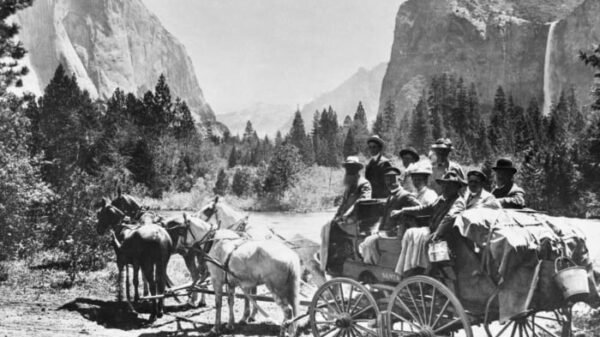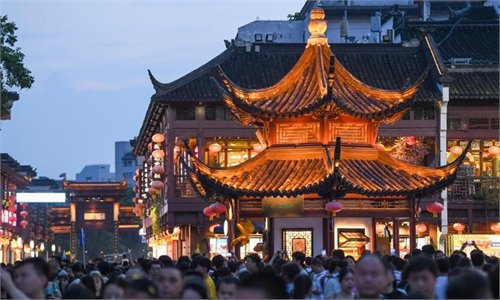China’s Summer Tourism Peak: Challenges in Reserving Scenic Spots
China, with its rich cultural heritage and stunning landscapes, has always been a top tourist destination. However, as summer approaches and the tourism industry reaches its peak, a recent survey conducted by a leading travel agency has revealed that a staggering 74.9% of tourists encounter difficulties in reserving scenic spots. This article delves into the reasons behind the challenge and offers insights into how this issue impacts both tourists and the tourism industry as a whole.
An Overview of China’s Summer Tourism Peak
The summer season in China is marked by an influx of tourists from all corners of the globe. The mesmerizing landscapes, ancient historical sites, and vibrant culture lure travelers seeking unforgettable experiences. However, this surge in demand during the peak period can lead to significant challenges for tourists trying to secure their spots in popular scenic destinations.
The Impact of Insufficient Infrastructure
One of the primary reasons behind the difficulty in reserving scenic spots is the lack of sufficient infrastructure. Many of China’s famous attractions, such as the Great Wall, the Terracotta Warriors, and the Forbidden City, can only accommodate a limited number of visitors at a time. With the overwhelming number of tourists during the summer season, it becomes increasingly challenging to secure entry tickets or book guided tours.
In addition, the reservation systems used by these attractions often lack efficiency and fail to keep up with the high demand. Long waiting times, technical glitches, and limited availability options further exacerbate the problem, leaving tourists frustrated and disappointed.
Fierce Competition and Overcrowding
The high demand for reservations during the summer tourism peak in China creates fierce competition among tourists. In some instances, travel agencies and tour operators book bulk tickets well in advance, making it difficult for individual travelers to secure a spot. This monopolistic approach not only deprives individual tourists of the chance to explore these scenic spots but also leads to overcrowding, diminishing the overall experience for visitors.
Furthermore, the excessive number of tourists can have detrimental effects on the environment and the preservation of these scenic spots. Uncontrolled footfall, littering, and damage to fragile ecosystems have become major concerns, prompting authorities to limit visitor numbers. Consequently, tourists face even greater hurdles in securing reservations.
The Ripple Effect: Impact on Tourists and the Tourism Industry
The challenges faced by tourists in reserving scenic spots during China’s summer tourism peak have a ripple effect on both individual travelers and the broader tourism industry as a whole.
Disappointed Tourists and Missed Opportunities
When tourists are unable to secure reservations for their desired scenic spots, they are left feeling disappointed and frustrated. The anticipation of exploring world-renowned attractions turns into missed opportunities, leading to a sense of regret and dissatisfaction. Such experiences tarnish the image of a destination and may deter future visitors from choosing China as their preferred travel destination.
Financial Implications for the Tourism Industry
The tourism industry plays a crucial role in China’s economy, contributing significantly to national revenue. However, the difficulties faced by tourists in reserving scenic spots can have financial implications for the industry. If visitors are unable to secure tickets or have a negative experience due to overcrowding or mismanagement, it can lead to reduced tourist spending, affecting the overall health of the tourism sector.
Moreover, the negative impact on the tourism industry extends beyond ticket sales. Reputation and word-of-mouth play a crucial role in attracting tourists. Unresolved challenges in securing reservations can give rise to negative reviews, influencing others’ perceptions and discouraging potential travelers from visiting China.
Conclusion
As China experiences its summer tourism peak, the difficulty in reserving scenic spots has become a major obstacle for tourists. Insufficient infrastructure, fierce competition, and overcrowding all contribute to this challenge, leaving visitors disappointed and impacting the tourism industry’s financial well-being. Efforts should be made to address these issues, including enhancing reservation systems, expanding infrastructure, and implementing sustainable tourism practices. By ensuring a smoother and more enjoyable experience for tourists, China can continue to attract visitors from around the world and maintain its position as a premier travel destination.
*Source www.globaltimes.cn




































